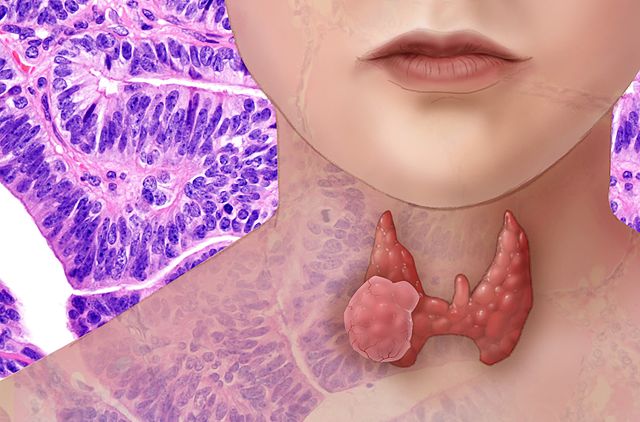January is Thyroid Disease Awareness Month
Let’s take a quick break from talking about your New Year’s fitness resolutions to talk about something you should be aware of if you are struggling to manage your weight: thyroid disease.
What is your Thyroid?
Your thyroid is a gland shaped like a butterfly that wraps around your trachea, or windpipe. It is located just below your Adam’s apple. You may have been checked for swelling in this area by a doctor during a routine exam or when presenting with cold symptoms. Your thyroid is responsible for regulating your metabolism, so thyroid disease can affect your body’s ability to properly store and use energy.
Your thyroid produces hormones that regulate your metabolism. When thyroid hormone levels are low, your brain tells your pituitary gland to release hormones that stimulate your thyroid. Since the thyroid operates on a feedback loop with your hypothalamus and your pituitary gland, disorders with any of these tissues can cause a problem and lead to thyroid disease.
What is Your Metabolism?
MedicineNet gives a very broad definition to the term ‘metabolism’: “The whole range of biochemical processes that occur within a living organism. Metabolism consists of anabolism (the buildup of substances) and catabolism (the breakdown of substances). The term metabolism is commonly used to refer specifically to the breakdown of food and its transformation into energy.”
This is the way we most commonly talk about your metabolism: it is the way your body handles your food, and turning it into energy. An overactive metabolism means that your body does not process your food very efficiently, meaning that you don’t get as much energy from the food you eat. An underactive metabolism stores too much energy, in the form of fat. Remember, a “calorie” is actually just a unit of measurement for energy. The way your body uses and stores these calories and how many you put into your body are what define your waistline.
How Does Thyroid Disease Affect Your Body?
Your thyroid is susceptible to developing thyroid cancers, thyroid nodules, or goiters (an enlargement of the thyroid gland). More commonly, however, thyroid disease can cause your thyroid to either work too hard or not work hard enough. Because your thyroid is responsible for regulating hormones related to your metabolism, thyroid disease can affect you in one of two ways: you can have an underactive or an overactive thyroid. This is known as hypothyroidism (underactive) or hyperthyroidism (overactive).
Hypothyroidism happens when your thyroid doesn’t produce enough of the thyroid hormone, which slows your metabolism, causing you to store too much energy and making you fatter. Symptoms of hypothyroidism can include:
- Fatigue
- Poor concentration or feeling mentally “foggy”
- Dry skin
- Constipation
- Feeling cold
- Fluid retention
- Muscle and joint aches
- Depression
- Prolonged or excessive menstrual bleeding in women
Hyperthyroidism is what happens when you produce too much of the thyroid hormone, which is a less common problem. Hyperthyroidism causes your metabolism to be problematically increased. Symptoms and signs of hyperthyroidism can include:
- Tremor
- Nervousness
- Fast heart rate
- Fatigue
- Intolerance for heat
- Increase in bowel movements
- Increased sweating
- Concentration problems
- Unintentional weight loss
The Hypothyroidism-Exercise Connection
According to EverydayHealth, the best exercise to treat the more common form of thyroid disease, hypothyroidism, is “a program of low-impact aerobic exercises and strength training, recommends Yaroslav Gofnung, MD, an endocrinologist at Los Robles Hospital in Thousand Oaks, Calif. Low-impact aerobics get your heart rate up and your lungs going without putting too much pressure on your joints, which is important because joint pain is another common hypothyroidism symptom, Dr. Gofnung says. People with hypothyroidism can also benefit from strength training — exercises such as lunges, leg raises, and push-ups or those involving weight-training machines. Strength training builds muscle mass, and muscle burns more calories than fat, even when you’re at rest. Building muscle can help counter possible weight gain from an underactive thyroid.”
Thyroid disease affects many Americans, but it can often go undiagnosed if you don’t know what symptoms to look for. If you’re experiencing symptoms of an over or under active metabolism, such as if you struggle to lose weight regardless of diet or exercise levels, then it may be worth speaking to your doctor to get your thyroid function tested.
Request a complimentary first session at Vertex Fitness, Voted the BEST Personal Training Studio on the Main Line
Click HERE and we will schedule a session to try it yourself
Complimentary First Workout Session








Leave a Comment